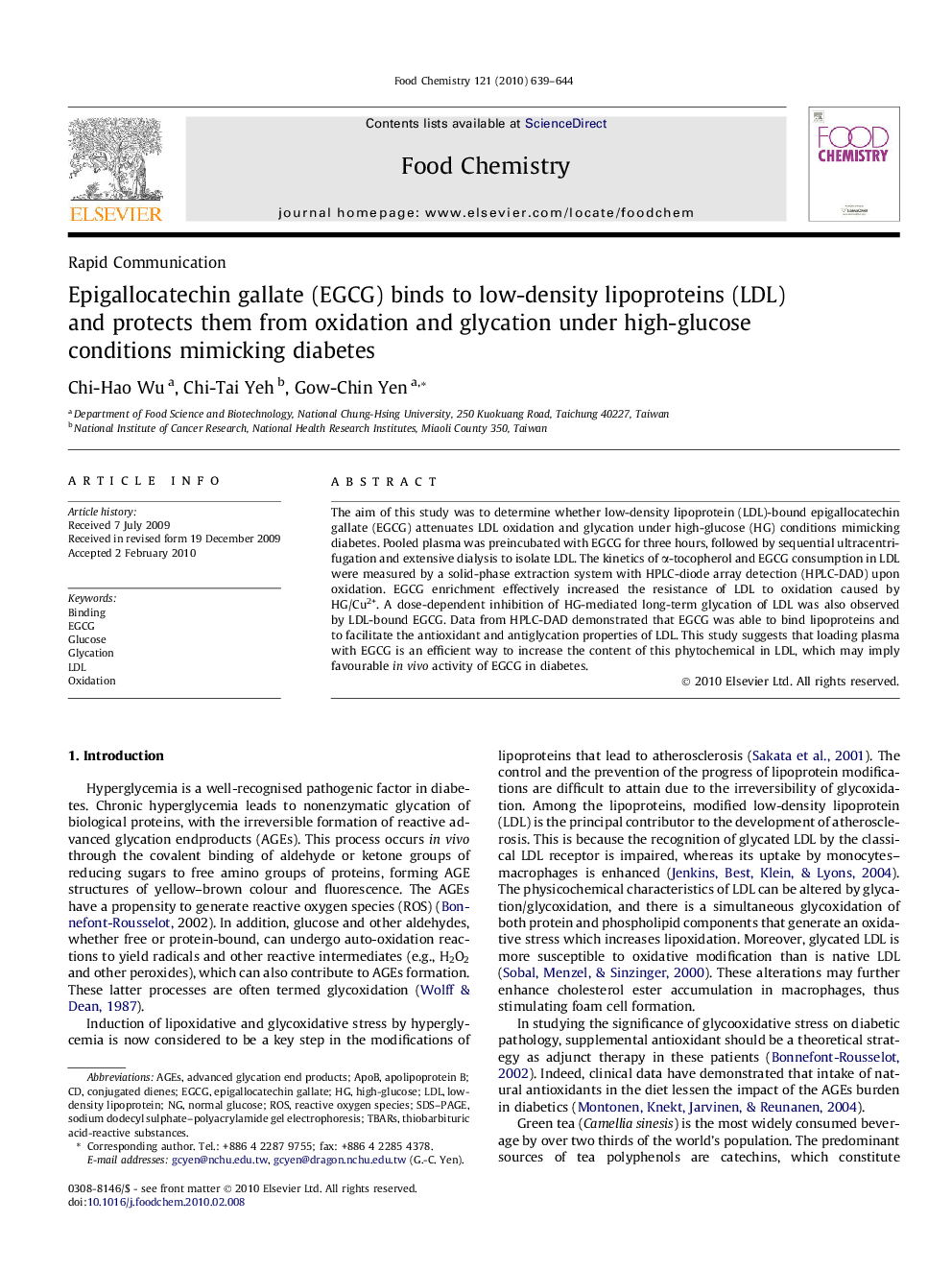| Article ID | Journal | Published Year | Pages | File Type |
|---|---|---|---|---|
| 1186624 | Food Chemistry | 2010 | 6 Pages |
The aim of this study was to determine whether low-density lipoprotein (LDL)-bound epigallocatechin gallate (EGCG) attenuates LDL oxidation and glycation under high-glucose (HG) conditions mimicking diabetes. Pooled plasma was preincubated with EGCG for three hours, followed by sequential ultracentrifugation and extensive dialysis to isolate LDL. The kinetics of α-tocopherol and EGCG consumption in LDL were measured by a solid-phase extraction system with HPLC-diode array detection (HPLC-DAD) upon oxidation. EGCG enrichment effectively increased the resistance of LDL to oxidation caused by HG/Cu2+. A dose-dependent inhibition of HG-mediated long-term glycation of LDL was also observed by LDL-bound EGCG. Data from HPLC-DAD demonstrated that EGCG was able to bind lipoproteins and to facilitate the antioxidant and antiglycation properties of LDL. This study suggests that loading plasma with EGCG is an efficient way to increase the content of this phytochemical in LDL, which may imply favourable in vivo activity of EGCG in diabetes.
